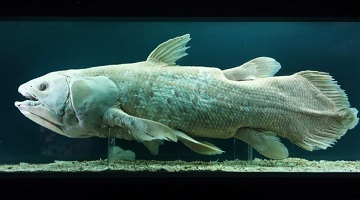2025/26 entry
BSc (Hons) Forensic Anthropology
Why study Forensic Anthropology at Liverpool John Moores University?
- Accredited by the Chartered Society of Forensic Sciences
- Extensive hands-on fieldwork and laboratory work
- Opportunity to study abroad or to undertake a year-long work placement
- Access to excellent collections of human skeletal remains
- Taught by experts in forensic anthropology, forensic archaeology, human osteology, genetics, crime scene analysis, disaster victim identification and mass graves investigation
- Specialist facilities including osteology labs with digital X-ray, 3D laser scanning and printing equipment, geophysics equipment for detecting grave sites, plus scene-of-crime houses and laboratories
- 100% of students surveyed said this course was intellectually stimulating (NSS 2024)
- Available to study following a foundation year
- International Foundation Year course available offering direct progression onto this degree programme
About your course
As part of the professionally accredited BSc (Hons) Forensic Anthropology at Liverpool John Moores University, you will acquire a solid grounding in human biology and skeletal anatomy, human variation, environmental sciences and forensic techniques to prepare you for a career as a forensic anthropologist.
You will have access to our excellent collections of human skeletal remains, as well as dedicated laboratories for analysing and documenting skeletal material. We also have geophysics equipment for exploring burial contexts, specialist forensic analysis facilities and a scene-of-crime lab. You will also be actively involved in excavating medieval human burial sites in Cheshire.
This is an extremely practical, hands-on programme. It focuses on the recovery of information from locations where bodies are found, as well as the human remains themselves. Fieldwork and practical experience in the osteology labs form a large component of your studies, and you will have the chance to develop your archaeological and anthropological skills working on the Poulton Project in Cheshire.
"I came to LJMU to study Forensic Anthropology as a mature student. The lecturers were very supportive and the course was amazing. It gave me the confidence to continue studying and I now work as a science teacher. I hope that I can give my students the support and self belief LJMU gave me."
Professional accreditation/links
The degree is accredited by the Chartered Society of Forensic Sciences. A number of our students are student members and representatives for the British Association for Forensic Anthropology (BAFA), members of the British Association for Human Identification (BAHID) and the British Association of Biological Anthropology and Osteoarchaeology (BABAO).
Fees and funding
There are many ways to fund study for home and international students
Fees
The fees quoted above cover registration, tuition, supervision, assessment and examinations as well as:
- library membership with access to printed, multimedia and digital resources
- access to programme-appropriate software
- library and student IT support
- free on-campus wifi via eduroam
Additional costs
Although not all of the following are compulsory/relevant, you should keep in mind the costs of:
- accommodation and living expenditure
- books (should you wish to have your own copies)
- printing, photocopying and stationery
- PC/laptop (should you prefer to purchase your own for independent study and online learning activities)
- mobile phone/tablet (to access online services)
- field trips (travel and activity costs)
- placements (travel expenses and living costs)
- student visas (international students only)
- study abroad opportunities (travel costs, accommodation, visas and immunisations)
- academic conferences (travel costs)
- professional-body membership
- graduation (gown hire etc)
Funding
There are many ways to fund study for home and international students. From loans to International Scholarships and subject-specific funding, you'll find all of the information you need on our specialist funding pages.
Practical and field activities underpin all programmes in the School. PPE is provided for all necessary practical work. There are no costs for day field trips for core and optional modules. Residential field trips associated with core modules are subsidised and include travel and half-board accommodation costs. Any residential field trips for optional modules will have costs involved. Locations may be subject to change and also subject to national and international travel restrictions.
A DBS check is not required for your application, however a DBS may be required for modules where there is a work based learning placement option. Work based learning placements that do not require a DBS check are available.
Employability
During criminal investigations and following mass fatality incidents such as natural disasters and human conflicts, government and non-government organisations recruit forensic anthropologists to assist in the recovery and identification of human remains for repatriation and legal purposes.
Commercial forensic science providers, police departments, universities, museums, industry and government laboratories all recruit graduates. Secondary science teaching is also a popular route. Some graduates have taken their studies further with a masters degree or PhD. The techniques used in forensic anthropology are derived from those used in traditional archaeological excavations and post excavation analysis of human remains. Archaeological units in the UK and abroad are therefore good places to seek employment and many of our graduates go on to become osteoarchaeologists.
If you decide not to pursue a career in forensic anthropology, your transferable skills will enable you to compete in the wider job market, for instance in the allied health sciences, where training in human anatomy and biology is highly valued.
Student Futures - Careers, Employability and Enterprise Service
A wide range of opportunities and support is available to you, within and beyond your course, to ensure our students experience a transformation in their career trajectory. Every undergraduate curriculum includes Future Focus during Level 4, an e-learning resource and workshop designed to help you to develop your talents, passion and purpose.
Every student has access to Careers Zone 24/7, LJMU's suite of online Apps, resources and jobs board via the LJMU Student Futures website. There are opportunities for flexible, paid and part-time work through Unitemps, LJMU's in-house recruitment service, and we also offer fully funded Discovery Internships.
One-to-one careers and employability advice is available via our campus-based Careers Zones and we offer a year-round programme of events, including themed careers and employability workshops, employer events and recruitment fairs. Our Start-Up Hub can help you to grow your enterprise skills and to research, plan and start your own business or become a freelancer.
A suite of learning experiences, services and opportunities is available to final year students to help ensure you leave with a great onward plan. You can access LJMU's Careers, Employability and Start-up Services after you graduate and return for one-to-one support for life.
Go abroad
LJMU aims to make international opportunities available to every student. You may be able to study abroad as part of your degree at one of our 100+ partner universities across the world. You could also complete a work placement or apply for one of our prestigious worldwide internship programmes. If you wanted to go abroad for a shorter amount of time, you could attend one of our 1-4 week long summer schools.
Our Go Citizen Scheme can help with costs towards volunteering, individual projects or unpaid placements anywhere in the world. With all of these opportunities at your feet, why wouldn’t you take up the chance to go abroad?
Find out more about the opportunities we have available via our Instagram @ljmuglobalopps or email us at: goabroad@ljmu.ac.uk.
A life-changing experience
There's so much more to university than just studying for a degree.
News and views
Browse through the latest stories and updates from the University and beyond
What you will study on this degree
Please see guidance below on core and option modules for further information on what you will study.
You will have access to our excellent collections of human skeletal remains, as well as dedicated laboratories for analysing and documenting skeletal material. We also have geophysics equipment for exploring burial contexts, specialist forensic analysis facilities and a scene-of-crime lab.
This is an extremely practical, hands-on programme. It focuses on the recovery of information from locations where bodies are found, as well as the human remains themselves. Fieldwork and practical experience in the osteology labs form a large component of your studies, and you will have the chance to develop your archaeological and anthropological skills working on the Poulton Project in Cheshire.
Further guidance on modules
Modules are designated core or optional in accordance with professional body requirements, as applicable, and LJMU’s Academic Framework Regulations. Whilst you are required to study core modules, optional modules provide you with an element of choice. Their availability may vary and will be subject to meeting minimum student numbers.
Where changes to modules are necessary these will be communicated as appropriate.
Level 4
Core modules
Crime Scene Investigation
20 credits
This module introduces you to crime scene investigation so you can develop skills such as: analysis and problem solving, written communication and team work. The basic crime scene skills of photography, note taking, and sketching are taught along with the concept of recovery, enhancement and comparison of fingerprints.
Forensic Science
20 credits
The aim of this module is to introduce you to a wide range of scientific areas and methods used in forensic science.
Genetics and Evolution
20 credits
This module explains fundamental principles in genetics and genomics and describes evolutionary processes from a genetics/genomics perspective in order to explain the origins of genetic and species diversity.
Introduction to Biological Anthropology
20 credits
This module provides a general introduction to biological anthropology, which is the major field forensic anthropology is derived from.
Introduction to Archaeology
20 credits
This module provides an introduction to the discipline of archaeology. You will be introduced to the concepts of science-based archaeology and cultural history with a regional focus on the archaeology of the British Isles.
Forensic Field Skills
20 credits
Within this module, you will be introduced to basic legal concepts, rules of evidence handling, basic archaeological techniques and outdoor crime scene protocols.
Level 5
Core modules
Forensic Methods
20 credits
This module develops practical skills in crime scene investigation and extends the knowledge of forensic analysis and concepts introduced at Level 4. You will also develop knowledge of the court system and the legal context of the discipline.
Human Osteology
20 credits
This module provides an introduction to the development and anatomy of the bones of the human skeleton with a view to identify human bones and teeth, their significance within the body, the landmarks and measurements used in the field of biological anthropology.
Forensic Human Identification
20 credits
Within this module, you will examine the causes and extent of genetic and phenotypic variation in modern human populations and also examine the methods used to reconstruct life patterns and individual identification from skeletal remains.
Human Anatomy and Genetics
20 credits
This module will provide you with basic knowledge of human anatomy and physiology. It also covers DNA techniques used in the field of human genetics and forensic anthropology.
Excavation and Analytical Techniques
20 credits
This module will provide anthropological work-based skills, including statistical data analysis, group work and experience of field excavation.
Optional Modules
Trace Evidence Analysis
20 credits
This module will provide you with a thorough knowledge of the use of microscopy in trace evidence analysis examining methodologies employed in the laboratory.
World Archaeology
20 credits
The aim of this module is to provide theoretical knowledge on societal development from an archaeological perspective and some practical experience in archaeological analytical techniques.
Sandwich Year - Forensic Anthropology
120 credits
The aim is to provide students with an extended period of work experience at an approved partner that will complement their programme of study at LJMU. This will give students the opportunity to develop professional skills relevant to their programme of study as well as the attitude and behaviours necessary for employment in a diverse and changing environment. This extended placement forms a key part of a sandwich degree. All placements need to be assessed and approved prior to commencement in line with the LJMU Placement Learning Code of Practice. The Code of Practice requires students to conduct themselves in a professional and responsible manner during the placement - failure to do so may lead to the placement being terminated prematurely. Placements are normally for one calendar year on a full-time basis. Split placements of a shorter duration may be permissible. There is an expectation that a minimum of 1200 hours will be spent in the workplace.
Study Year Abroad - Forensic Anthropology
120 credits
The aim is to provide students with an additional year of study at an approved overseas partner that will complement their programme at LJMU. This is an additional year of full-time study at an approved higher education institution. The modules to be studied must be agreed in advance, and must be appropriate for the student's programme of study. Assuming successful completion of this year, mark-bearing credit will be awarded by the Faculty Recognition Group. The grade conversion scale to be used will be made available in advance of the year abroad.
Study Semester Abroad - Forensic Anthropology
60 credits
The aim is to provide students with a semester of study at an approved overseas partner that will replace one semester of their LJMU programme at level 5.This is a semester of full-time study at an approved higher education institution which will replace one semester of level 5 study at LJMU. The modules to be studied must be agreed in advance, and must be an appropriate substitute for the modules being replaced. Assuming successful completion of this semester, mark-bearing credit will be awarded by the Faculty Recognition Group. The grade conversion scale to be used will be made available in advance of the semester abroad.
Level 6
Core modules
Palaeopathology
20 credits
This module provides a brief history of medicine and gives you the knowledge to identify the signs of disease in the human skeleton and relate their findings to a broader forensic and archaeological context.
Advanced Forensic Anthropology
20 credits
This module provides training in theoretical and practical skills used by forensic anthropologists.
Research Project - Forensic Anthropology
40 credits
The Research Project allows you to demonstrate your ability to carry out practical research and to present your findings in a scientific report and presentation.
Optional Modules
Advanced Forensic Methods
20 credits
The aim of this module is to provide you with thorough knowledge of advanced types of crime scene investigation and to introduce new and novel research in forensic science and to be able to use advanced statistical methods for evaluating forensic evidence.
Expert Witness
20 credits
This module looks at forensic science and related professions and the role of the expert witness. The aim of this module is to develop knowledge and practical experience of the role of an expert witness within the context of Forensic Science.
Forensic Bioscience
20 credits
Within this module, you will learn about the applications of biological techniques in forensic science and be able to review how biological evidence can contribute to a wide range of forensic investigations.
Work-Based Learning
20 credits
This module provides relevant, stimulating and career-orientated experiential learning to encourage you to develop transferable skills relevant to the work environment and to foster initiative and independence of thought.
Geoforensics
20 credits
The aim of this module is to introduce you to the key skills and perspectives required to collect, critically evaluate and present geoforensic evidence. It will provide transferable skills in forensic field survey, site management, laboratory and geo-data analysis applicable to many situations in professional environmental science.
Forensic Anthropological Genetics
20 credits
This module will explore the uses of genetic techniques in the field of forensic science and anthropology from a theoretical and practical perspective. It also focuses on DNA techniques in the fields of Forensic Science and Forensic Anthropology.
Forensic Archaeology
20 credits
This module gives preparatory field training, followed by the excavation of a simulated mass grave facility on an LJMU owned site, which is used to teach and assess core and advanced skills necessary for employment in forensic archaeology. This includes training on field technologies (drones, total stations, GIS and geophysical instruments), geological and archaeological field skills, forensic archaeological methods of recording and evidence recovery, and how to prepare and present formal evidence within culturally sensitive social and legal frameworks.
Teaching and work-related learning
Excellent facilities and learning resources
We adopt an active blended learning approach, meaning you will experience a combination of face-to-face and online learning during your time at LJMU. This enables you to experience a rich and diverse learning experience and engage fully with your studies. Our approach ensures that you can easily access support from your personal tutor, either by meeting them on-campus or via a video call to suit your needs.
You will also attend lectures, interactive workshops, laboratory sessions, online activities and small-group tutorials. Teaching accounts for approximately 12-15 hours of your week.
The rest of your time should be spent in private study with the aid of resources available from our virtual learning environment, Canvas and Learning Resource Centre, so you can learn in your own time, at your own pace. Independent study becomes increasingly important as you work on your research project in your final year.
Work-related learning
Work experience is a vital part of your studies and we strongly recommend that you undertake a 12-month sandwich placement after your second year, either in the UK or abroad. You will also have the chance to do a short 4-6 week long work-based learning placement before your final year. Placements not only give you a chance to put what you have learnt into practice, but they also develop your personal and subject-related skills and help you acquire new skills to enhance your CV.
Support and guidance
Dedicated personal tutor, plus study skills support
You will be allocated a personal tutor, so that you can discuss course material informally as part of a small tutorial group or have one-to-one progress review meetings. You will also be allocated a supervisor for your project or work-related learning, and for your year-long placement if you choose the sandwich option.
The school is fully committed to promoting a learning environment that supports a culture of equality, diversity and inclusivity (EDI) and has a Disability Support Coordinator, an EDI Coordinator and a School EDI Working Group. Personal Tutors also play a vital role in promoting awareness of support services for students.
Assessment
Assessment varies depending on the modules you choose, but will usually include a combination of exams and coursework.
We understand that all students perform differently according to how they are assessed, which is why we use a combination of assessment methods. These include:
- exams in the form of multiple choice, short answer, interpretative, problem-based learning and essay questions
- coursework, including phase tests, fieldwork/practical reports, data handling, oral presentations, poster presentations, podcasts, online or real-time group discussions, essays or the evaluation of practical skills
As some of the modules are highly practical, they are assessed by coursework only.
For the final year research project you will be expected to write a literature review and short scientific write-up. Work-based learning placements are assessed through a reflective diary, portfolio and student presentation.
Constructive feedback is vital in helping you to identify your strengths as well as the areas where you may need to put in more work. This is normally provided within three weeks of submission and may be via Canvas (our virtual learning environment), face-to-face or in writing.
Course tutors
Our staff are committed to the highest standards of teaching and learning
My experience as a practitioner enables me to provide in-depth knowledge of what it's like working as a forensic anthropologist and how to apply theory students learn on the programme to real forensic cases
Facilities
What you can expect from your School
You will study at the Byrom Street site in the university's City Campus in the heart of Liverpool. You will have access to first class teaching facilities, laboratories and study areas. The Avril Robarts library is within easy walking distance and here you'll find all the information you need to support your studies.
Entry requirements
Please choose your qualifications below to view requirements
Grades/points required from qualifications: BCC-BBC (104-112)
Qualification requirements
GCSEs and equivalents
Grade 4 or grade C or above in English Language and Mathematics/ Numeracy.
GCSE Equivalences accepted:
• Key Skills Level 2 in English/Maths
• NVQ Level 2 Functional skills in Maths and English Writing and or Reading
• Skills for Life Level 2 in Numeracy/English
• Higher Diploma in Maths/English
• Northern Ireland Essential Skills Level 2 in Communication or Application of Number
• Wales Essential Skills Level 2 in Communication or Application of Number
A levels
BCC-BBC (104-112)
Minimum Number of A Levels: 2
Maximum AS UCAS Points: 20
BTECs
Extended Diploma: DMM
Access awards
Acceptable on its own and combined with other qualifications
Pass overall with a minimum of 104 points
International Baccalaureate
Acceptable on its own and combined with other qualifications From a relevant subject
OCR Cambridge Technical
Extended Diploma: DMM
Irish awards
Acceptable on its own and combined with other qualifications From a relevant subject
T levels
Acceptable on its own and combined with other qualifications.
You need to obtain the required UCAS points from a related subject area.
International requirements
-
IELTS
6.0 overall with no component below 5.5, taken within two years of the course start date.
https://www.ljmu.ac.uk/study/courses/international-entry-requirements
Please Note: All international qualifications are subject to a qualification equivalency check.
Application and selection
Securing your place at LJMU
UCAS is the official application route for our full-time undergraduate courses. Further information on the UCAS application process can be found here https://www.ljmu.ac.uk/study/undergraduate-students/how-to-apply.
The university reserves the right to withdraw or make alterations to a course and facilities if necessary; this may be because such changes are deemed to be beneficial to students, are minor in nature and unlikely to impact negatively upon students or become necessary due to circumstances beyond the control of the university. Where this does happen, the university operates a policy of consultation, advice and support to all enrolled students affected by the proposed change to their course or module.
Further information on the terms and conditions of any offer made, our admissions policy and the complaints and appeals process.












